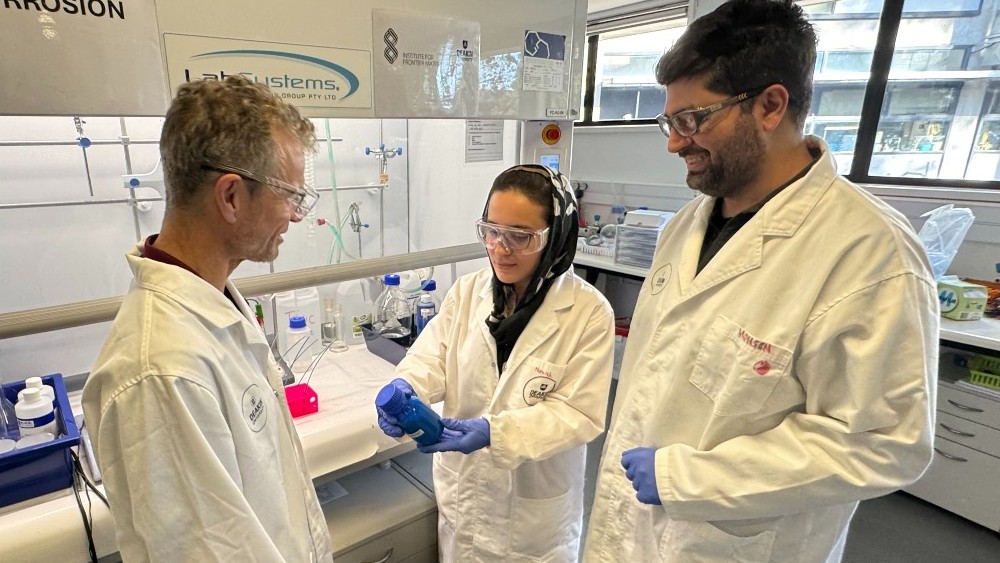July 8, 2025
Collaboration drives next-gen sustainable coating alloys
Working Collaboratively and Making an Impact: Developing next generation sustainable coating alloy
is committed to creating a more sustainable future by working to renew its Permaseal® coating in collaboration with researchers from . As part of the Steel Research Hub’s Product Innovation and Technology Program, the project delivers process and material innovations to InfraBuild Wire’s Zn-Al hot-dipped coated steel wire products, targeting enhanced durability.
Postdoctoral Research Fellow Mohsen Saeedi and Project Leader Anthony Somers bring expertise in coatings and corrosion inhibition, work that complements the vast product and process experience of Malcolm Robertson and Lauren Andrews at InfraBuild. The research plan includes collaborative testing, with feedback between laboratory-scale experiments at Deakin and small-scale trials at InfraBuild, subsequently plant trials in 2024 and a full commercial run in 2025.
The Permaseal® coating process occurs shortly after the wire passes through molten zinc/aluminium (around 440C), before going through the polymer solution. This process requires precise control to maintain polymer coating quality. However, one component of the bath has strict usage and disposal guidelines. InfraBuild aims to replace this component with more sustainable alternatives while maintaining precise control and a high level of performance.
Even minor changes in solution composition can significantly impact coating quality. To achieve a strong bond between the polymer coating and the Zn-Al metal surface of the wire, the solution must be active enough to create a clean, micro-roughened substrate. However, it cannot be too aggressive, as this may lead to contamination. Ideally, the treatment adds a passivating layer or corrosion inhibitors to enhance protection and prevent “white rust” during damp or humid storage, especially in the wire's early life when the zinc-aluminium coating has not matured.
Traditionally, chromates are used as surface-active compounds; they are being replaced by alternatives like phosphates and nitrates. Adjusting a solution that is in continuous use at two plants—coating up to 50 lines at 120 m/min—is challenging. Additionally, any changes to the solution must not alter the blue colour of the polymer, which is vital to maintaining the customer association with InfraBuild’s Waratah products.
In a truly collaborative project, InfraBuild and Deakin each conducted experiments to establish parameters for a plant trial. Deakin's initial studies focused on controlling reactions on the Zalcote® alloy surface through dissolution and electrochemical analyses. Deakin and InfraBuild researchers tested and evaluated promising candidates on Zalcote® wire under conditions simulating the industrial process, with tight controls on polymer addition, solution time, and temperature. After successfully passing InfraBuild’s adhesion 'wipe test,' InfraBuild conducted further coating trials and aggressive corrosion testing. With the solution components identified and their effects understood, plant trials followed. After two rounds of trials to balance corrosion resistance and adhesion, a full commercial run occurred in March 2025.
Overall, InfraBuild is making significant progress towards its sustainability goals and product quality through this Steel Research Hub project.
